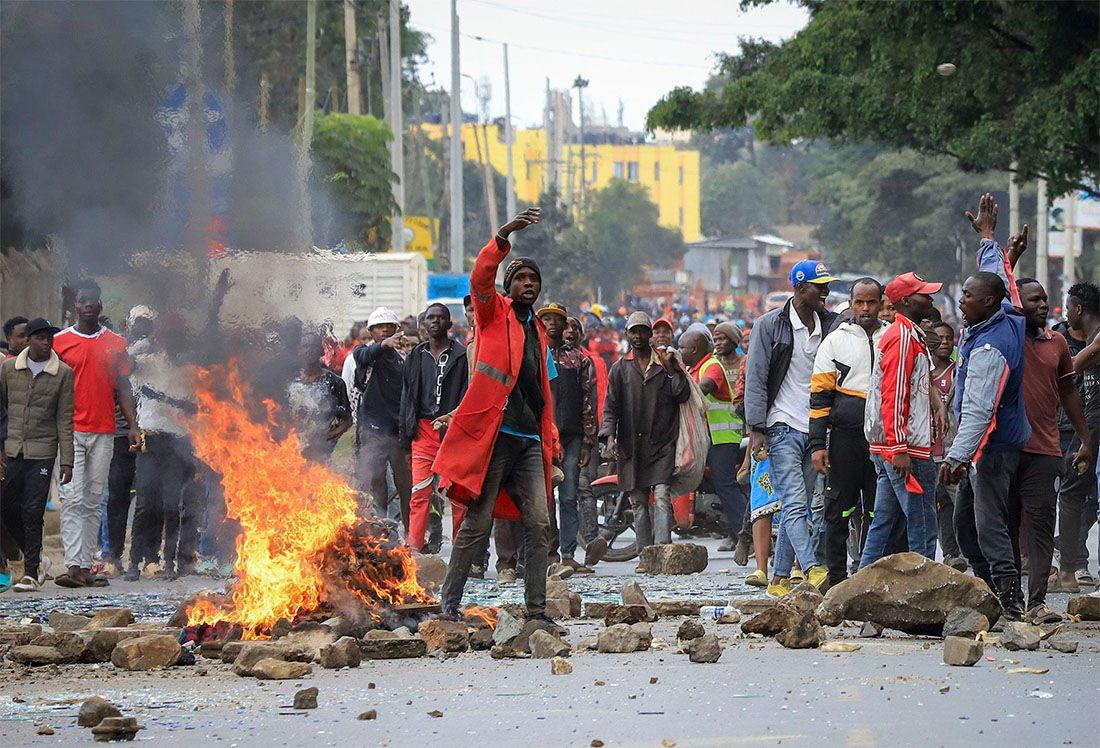
Photo Credit: Getty Images
April 28, 2025, BBC Africa Eye released an unapologetic documentary titled Blood Parliament, exposing the behind-the-scenes stories of Kenya’s Gen Z-forged protests in June and July last year. The series investigates how police reacted with bullets after a rebellion sparked by Gen Z against the widely criticized Finance Bill 2024—a bill hiking taxes amid economic struggle—exploded across the country. What started out as peaceful demonstrations ended up in a bloodbath with at least 39 persons dead, the majority being young, unarmed, and never seen again.
Blood Parliament assigns faces and names to the atrocities. Based on eyewitness accounts, video evidence, and forensic data, the film points fingers at particular police officers accused of conducting the fatal shootings. The documentary boldly contradicts the Kenyan government’s account of events, which basically minimized the fatalities or turned the victims into violent agitators. The film illustrates how a democratic space—the parliament grounds—was converted into the site of state brutality, hence the title.
The release has sparked a storm of responses throughout Kenya and the world. Social media went into overdrive with the hashtag #BloodParliament, as people posted clips, debated the expose, and called for justice for the dead. Youth organizers hailed the BBC for refusing to allow the deaths to go into oblivion, while human rights organizations reissued their demand for independent investigations.
But not everyone has been welcoming to the show. Kenyan officials attempted to block its screening, triggering concerns over national security. Government spokesmen labeled the film “foreign propaganda” and promised trouble. Yet the documentary was being widely shared on the internet and viewed by thousands in the hours after it was released.
What makes Blood Parliament so powerful is its focus on a generation that will not be silenced. It’s not merely police brutality—there is a broken system that Gen Z is trying to upend. Some of the youth featured in the film speak openly about poverty, unemployment, and betrayal from officials who were present to protect them.
Beyond being a movie, Blood Parliament has been a national mirror that forces Kenyans to face hard facts. As the frenzy increases, so does pressure on the authorities to respond not in further violence, but in accountability, reform, and genuine discourse with the youth of the nation.
















